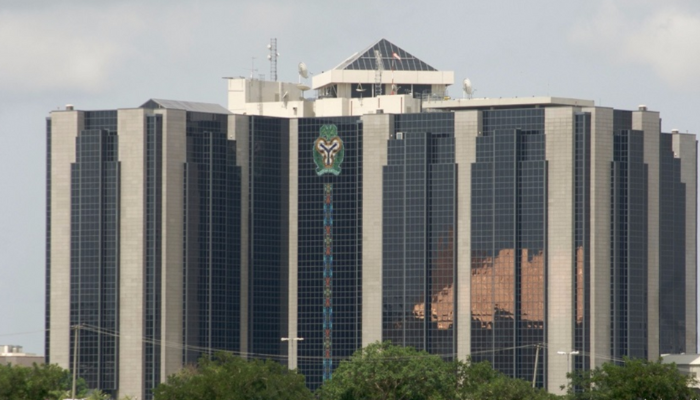Nigeria’s foreign exchange reserves have surged to $42 billion, marking their highest level in six years, a development that analysts and policymakers describe as a turning point in the country’s economic trajectory. The rise, which reflects a combination of improved crude oil earnings, increased foreign exchange inflows, and strategic reforms by the Central Bank of Nigeria (CBN), is seen as a major boost to the nation’s financial stability and its ability to defend the naira against volatility.
The new reserve figure is significant, considering that just over a year ago, Nigeria’s reserves had dipped below $34 billion amid global oil price fluctuations, limited capital inflows, and high import demands. The $42 billion milestone now underscores the effectiveness of recent policy shifts designed to restore investor confidence, stabilise the exchange rate, and rebuild the economy’s buffers.

Market watchers note that the reserves increase comes at a crucial time when the country is navigating multiple challenges, including high inflation, currency volatility, and the lingering effects of global economic disruptions. With the reserves at their highest since 2019, Nigeria now has stronger leverage to meet its import bills, service external debt obligations, and intervene in the FX market to stabilise the naira where necessary.
Analysts attribute the growth in reserves primarily to higher crude oil receipts, driven by improved production levels and more efficient revenue collection systems. Recent reports indicate that Nigeria is edging closer to its OPEC production quota, with daily output averaging over 1.6 million barrels per day in August. This improved performance follows years of production shortfalls caused by crude theft, pipeline vandalism, and underinvestment in the oil sector. The ramp-up in production, coupled with relatively stable global oil prices, has boosted government earnings and, by extension, foreign reserves.
In addition, the government’s push to enhance non-oil exports has also contributed to the reserve accretion. With the Nigeria Export Promotion Council (NEPC) and other agencies intensifying efforts to diversify export revenues, sectors like agriculture, manufacturing, and services are beginning to record incremental forex inflows. The CBN’s policy of incentivising exporters to repatriate proceeds has equally played a role in strengthening reserves.
Another major factor is the steady improvement in foreign portfolio and direct investments. Investor sentiment has been bolstered by the CBN’s reforms aimed at unifying the exchange rate system, improving transparency in FX transactions, and ensuring liquidity in the official market. Recent reports of increased foreign inflows into equities and government securities highlight the renewed confidence in Nigeria’s capital market, with foreign investors seeing opportunities in the country’s large consumer base and reform-driven outlook.
The reserves milestone also reflects the government’s success in securing international financing support. Multilateral institutions such as the World Bank and African Development Bank have extended funding for infrastructure and economic reforms, while bilateral agreements with development partners have boosted external liquidity. These inflows, combined with improved remittances from Nigerians in the diaspora, have provided additional support for reserves growth.
For businesses and households, the reserves increase carries potential positive implications. A stronger buffer enhances the CBN’s capacity to stabilise the naira, thereby reducing volatility in the FX market. This could ease cost pressures on import-dependent industries, lower inflationary pass-through from currency depreciation, and improve overall macroeconomic stability. The news has already sparked optimism among traders and manufacturers who rely heavily on foreign inputs for production.
However, experts caution that sustaining the reserves at this level will require consistent policy discipline and further structural reforms. While crude oil remains the dominant source of foreign exchange, overreliance on the sector makes the reserves vulnerable to global price shocks and production disruptions. To mitigate these risks, stakeholders have urged the government to accelerate diversification into non-oil exports, strengthen local manufacturing, and address bottlenecks in agriculture and mining.
Some analysts also stress the importance of managing external debt repayments carefully, given that rising reserves could tempt policymakers into increased borrowing. Nigeria’s external debt profile has expanded in recent years, and while higher reserves improve debt-servicing capacity, prudent fiscal management will be necessary to prevent reserves depletion in the medium term.
The reserves milestone has already had a positive impact on the naira, which has seen increased stability in recent weeks. On the official window, the exchange rate has hovered around ₦1,497/$, while pressure in the parallel market has eased significantly. Many analysts predict that with reserves at $42 billion, the CBN has more room to smooth out speculative attacks and ensure liquidity across FX windows, thereby sustaining confidence in the currency.
Looking ahead, the challenge will be how to sustain and possibly grow the reserves further. Oil market volatility, domestic insecurity in oil-producing regions, and global financial conditions could all pose risks. Yet, if current reforms in the oil and non-oil sectors are maintained, coupled with improved foreign investment flows, Nigeria could not only sustain the $42 billion mark but also push reserves to new highs in the coming years.
In conclusion, Nigeria’s foreign exchange reserves climbing to $42 billion, the highest in six years, is a clear signal of economic recovery momentum. It underscores the positive effects of ongoing reforms, improved crude oil performance, and stronger inflows from multiple sources. While challenges remain, this achievement represents a critical foundation for exchange rate stability, inflation control, and long-term economic resilience. For investors, businesses, and households, it offers renewed confidence in Nigeria’s economic outlook, provided the government continues to strengthen diversification and fiscal discipline.
Support InfoStride News' Credible Journalism: Only credible journalism can guarantee a fair, accountable and transparent society, including democracy and government. It involves a lot of efforts and money. We need your support. Click here to Donate
